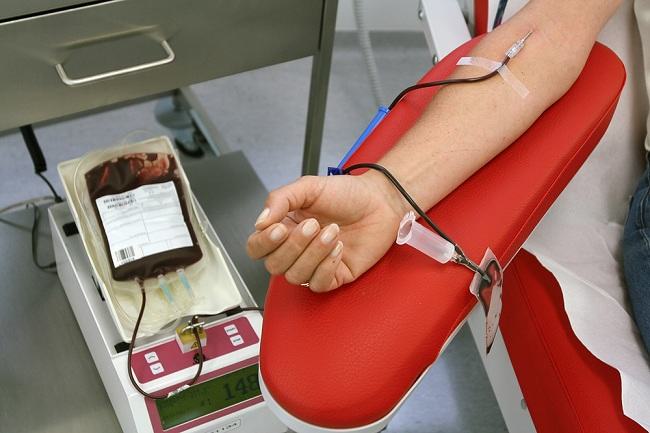Bisphosphonates or bisphosphonates are a group of drugs to treat osteoporosis. This drug is also used in the treatment of Paget's diseaseanhigh levels of calcium in the blood (hypercalcemia) due to cancer that has spread to the bones.
Bone cells are always undergoing a regeneration process by osteoblasts and osteoclasts. Osteoblasts will form bone tissue using minerals, while osteoclasts play a role in destroying bone tissue and resorption or reabsorption of minerals, so that they can be reused.

Bisphosphonates work by inhibiting the process of bone resorption by osteoclasts, thereby reducing the risk of bone loss, increasing bone density, strengthening bone tissue, and reducing the risk of fractures.
Bisphosphonates are available in the form of tablets, capsules, and injectable or intravenous fluids. The use of this drug must be in accordance with a doctor's prescription. Bisphosphonate injection or infusion will be given in the hospital by a doctor or medical officer under the supervision of a doctor.
Precautions Before Using Bisphosphonates
Bisphosphonates are generally used as long-term treatment, which is between 3-5 years, depending on the patient's condition. Some things to note before using this drug are:
- Do not use bisphosphonates if you are allergic to this drug. Tell your doctor about any allergies you have.
- Tell your doctor if you have any problems with your esophagus, such as achalasia, difficulty swallowing, difficulty standing or sitting up straight, low levels of calcium in the blood (hypocalcemia), stomach ulcers or ulcers, kidney disease, asthma, parathyroid disease, or liver disease.
- Tell your doctor if you have or have recently had parathyroid gland surgery, thyroid gland surgery, or small bowel surgery.
- Tell your doctor if you are pregnant, breastfeeding, or planning a pregnancy.
- Tell your doctor that you are taking bisphosphonates while you are planning to have dental treatment or surgery.
- Tell your doctor if you are taking certain medications, supplements, or herbal products.
- Adequate intake of vitamin D and calcium during treatment with bisphosphonates.
- Do regular dental and oral examinations and see a doctor immediately if you experience jaw pain during treatment with bisphosphonates, as these drugs can cause problems with the jawbone.
- Tell your doctor right away if you have an allergic reaction to a drug, an overdose, or a more serious side effect after taking bisphosphonates.
Side Effects and Dangers of Bisphosphonates
Side effects of using bisphosphonate drugs vary widely, generally depending on the form and type of bisphosphonate drug used.
The main side effects that may appear after taking bisphosphonate tablets are stomach upset or heartburn. To prevent these side effects, avoid lying down or bending over for 30-60 minutes after taking this medicine.
In general, other side effects that can appear after the use of bisphosphonate drugs are:
- Muscle, joint, or bone pain
- Stomach pain, bloating, constipation, or diarrhea
- Dizziness, headache, or tiredness
Check with your doctor if the side effects above don't go away or get worse. See your doctor immediately if you have an allergic reaction to the drug or a more serious side effect, such as:
- Osteonecrosis, which can be characterized by symptoms such as jaw pain, swelling in the hands, feet, severe joint, bone, or muscle pain, or pain in the hip
- Easy bruising, bloody or black stools, coffee-colored vomit, severe stomach pain, or difficulty swallowing
- Chest pain or irregular heartbeat
- Muscle stiffness, tingling, or spasms
- Kidney disorders that can be characterized by symptoms such as infrequent urination or very small amounts of urine
Types, Trademarks and Dosage of Bisphosphonate Drugs
The following are the types of drugs that are included in the bisphosphonate group, along with the trademarks and dosages:
1. Alendronate
Trademark: Allovel, Osteofar
Shape: Tablet
- Condition: Postmenopausal osteoporosis
For treatment, the dose is 10 mg, 1 time a day. For prevention, the dose is 5 mg, 1 time a day
- Condition: Paget's disease
Dosage 40 mg, once daily, for 6 months. Treatment can be repeated if needed.
2. Clodronate
Trademark: Actabone, Bonefos, Clodronate Disodium Tetrahydrate
Forms: Tablets, capsules, and injectable or infusion fluids
- Condition: Treatment of hypercalcemia due to cancer
Dosage of 300 mg, daily given by infusion until the patient's calcium levels return to normal, maximum use of 7 days. Treatment can be continued in tablet form at a dose of 1,600–2,400 as a single dose or divided into 2 doses.
- Condition: Treatment of cancer that has spread to the bones
Dosage 1,600 mg, once a day or divided into 2 doses. The maximum dose is 3,200 mg per day.
3. Risedronate
Trademark: Actonel OAW Osteonate Ristonate Retonel
Shape: Tablet
- Condition: Treatment and prevention of postmenopausal osteoporosis
Dosage 5 mg, 1 time a day.
- Condition: Medications to increase bone density in men with osteoporosis
Dosage 35 mg, once a week.
- Condition: Paget's disease treatment
Dosage 30 mg, once daily, for 2 months. The dose can be repeated after 2 months if needed.
4. Ibandronate
Trademark: Bondronate, Bonviva, Bonevell
To find out the dosage and more information about this drug, please visit the ibandronate drug page.
5. Zoledronic acid
Trademark: Aclasta, Bonmet, Fondronic, Zoffec, Zoledronic Acind Monohydrate, Zolenic, Zometa, Zyfoss
To find out the dosage and more information about this drug, please visit the zoledronic acid drug page.









